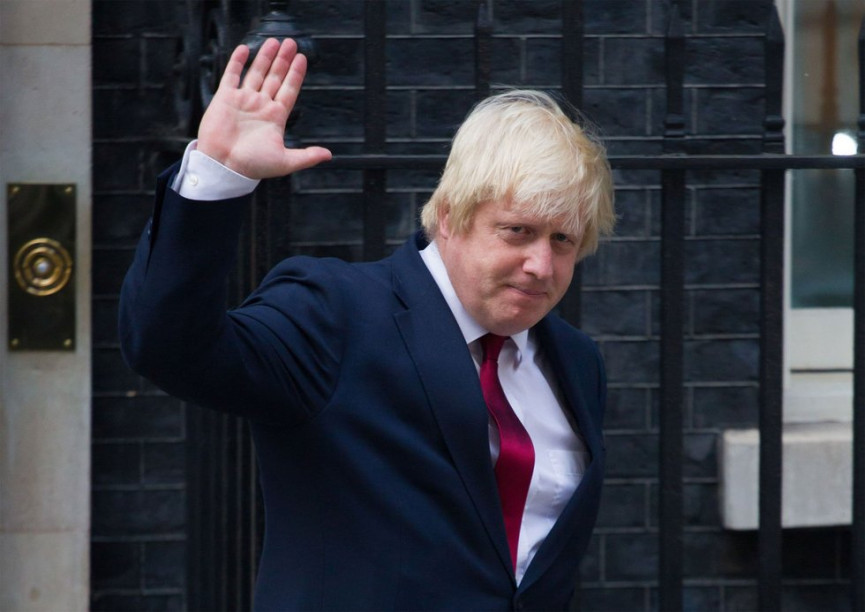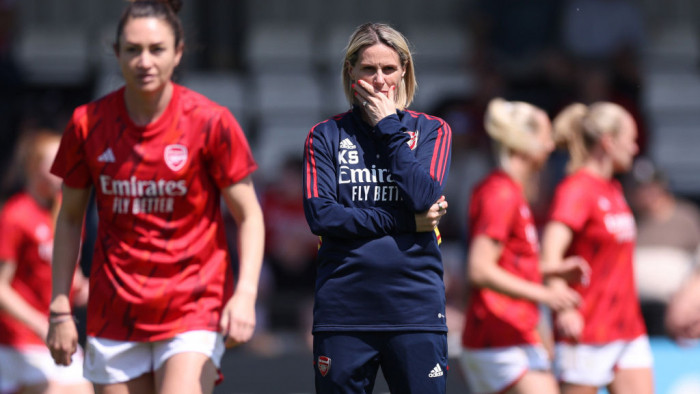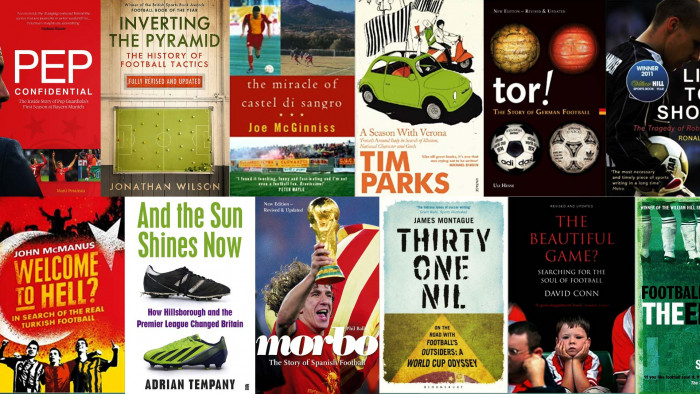They say a week is a long time in politics.
Well, in the last month or so since the UK sensationally voted to leave the European Union in a referendum on Thursday 23 June, it's felt very much like an entire year's worth of activity in politics - and more - has happened every single day.
32 days on from that seismic decision, here are 32 crazy events that in any other time would have been major events - we could easily have found more.
Farage concedes defeat in the referendum

23 June: With a YouGov opinion poll putting Remain ahead by 52% to 48%, UKIP leader Nigel Farage tells Sky News that the Remain camp seems likely to “edge it." Appearing to concede defeat, he says: “It’s been an extraordinary referendum campaign, turnout looks to be exceptionally high and (it) looks like Remain will edge it. UKIP and I are going nowhere [see number 16 for how that panned out] and the party will only continue to grow stronger in the future.”
David Cameron resigns as Prime Minister
24 June: After the results come in and it transpires that it is the 'Leave' camp that have triumped - 52% to 48% - David Cameron is left with no option but to resign as Prime Minister, in an emotional speech outside 10 Downing Street, flanked by his wife Samantha. Announcing that he would step down by October, he says, "I do not think it would be right for me to try to be the captain that steers our country to its next destination."
Boris Johnson gives world's most depressing victory speech
24 June: After waiting for Cameron to resign, Boris Johnson and Michael Gove, two of the 'big three' of the Leave campaign, finally emerge at 11am to make a victory speech. However, it is incredibly downbeat in tone, with many believing that Johnson had never wanted to win the vote in the first place, instead wishing to be seen as a 'plucky loser' who could then challenge for Prime Minister in 2018. Nonetheless, he is the instant favourite to take over from Cameron.
Nigel Farage admits that the £350m promise was a "mistake"

24 June: Meanwhile, within hours of the result, Nigel Farage says it was a "mistake" for the Leave campaign to promise that £350m a week would be diverted from paying for the EU to being spent on the NHS - the claim was a central part of their campaign message.
Sterling falls 8% against the dollar

24 June: The markets give their initial verdict to the Brexit vote, with the pound collapsing in value against the euro and the dollar. Its movement the day after the referendum vote saw the biggest one-day fall of any hard currency since the early 1970s. By early July, it had fallen to a 31-year low.
Hilary Benn is sacked from shadow cabinet, others follow

26 June: In the wake of criticism for his lacklustre campaigning for Remain, the party's MPs begin to revolt against leader Jeremy Corbyn. On 26 June, the Labour leader sacks Hilary Benn after he openly said he had no confidence in him. Benn told reporters, "In a phone call to Jeremy I told him I had lost confidence in his ability to lead the party and he dismissed me." The move leads to a whole wave of resignations from the shadow cabinet.
England exit Euro 2016 after losing to Iceland

27 June: Political Brexit is followed by a sporting one as England crash out of Euro 2016, losing 2-1 to Iceland - the minnows of the whole tournament - in the second round, despite going into the lead. The performance is heralded as one of the worst in the history of the national team's history.
Roy Hogdson resigns as England manager

27 June: Immediately after the game, Roy Hodgson resigns as England manager. Despite quitting, he is forced to attend a press conference the next day to explain his failings. "I don’t really know what I’m doing here. I thought my statement was sufficient," he says as he flinches at many questions. The search begins for his successor.
Labour MPs overwhelmingly vote for a motion of no confidence in Jeremy Corbyn

28 June: following the resignations and sackings, a motion of no confidence in Labour leader Jeremy Corbyn by the party's MPs is passed, by 172 to 40. Undeterred, Corbyn states that the ballot has "no constitutional legitimacy" and vows not to "betray" those members who voted for him a year previously. The party is told to trigger a formal leadership contest if they want to replace him.
Farage booed as he gives offensive speech in European parliament
28 June: The moment that Nigel Farage had been waiting 17 years for; he gives it both barrels to the European Parliament, mocking those present by saying, "You, as a political project, are in denial. You are in denial that your currency is failing," adding that, “Virtually none of you have ever done a proper job in your lives.” For his part, The European commission president Jean-Claude Juncker asks, “You were fighting for the exit. The British people voted in favour of the exit; why are you here?"
Leaked email from Sarah Vine to Michael Gove tells him to be his 'stubborn best'

29 June: As prospective Conservative Party leaders prepare to launch their campaigns, an email from Michael Gove's wife, newspaper columnist Sarah Vine, is leaked. With her husband expected to be Boris Johnson's right-hand man, she urges him: "One simple message... you MUST have SPECIFIC assurances from Boris OTHERWISE you cannot guarantee your support. The details can be worked out later on, but without that you have no leverage. Crucially the membership will not have the necessary reassurance to back Boris, neither will Dacre / Murdoch, who instinctively dislike Boris but trust your ability enough to support a Boris / Gove ticket. Do not concede any ground. Be your stubborn best. GOOD LUCK."
Michael Gove announces he's standing to be Conservative Party leader
30 June: In an act of sabotage of Shakespearean proportions, Michael Gove shocks the political world by announcing that he is going to run for leader against his former comrade Boris, saying that Johnson “cannot provide the leadership or build the team for the task ahead”. Despite claiming that it was a last-minute change of heart, he reads out a preprepared 5,000 word speech outlining his would-be plans as leader.
Boris Johnson announces....nothing
30 June: Having been knifed in the back by Michael Gove, Boris Johnson quickly realises that he is no longer likely to win a leadership contest but, with the venue already booked and journalists waiting, he still has to make a speech, where he waffles on before confirming that he will not be running for Conservative Party leader.
Theresa May, Stephen Crabb, Liam Fox and Andrea Leadsom all announce they're standing

30 June: The other candidates quickly line up alongside Gove, with Theresa May - who had campaigned quietly for Remain in the referendum - Liam Fox, Stephen Crabb and Andrea Leadsom all throwing their hats in the ring.
George Osborne abandons target to run a budget surplus by 2020

1 July: In the wake of the economic shock of Brexit, George Osborne formally abandons his target to run a budget surplus by 2020, effectively announcing the failure of austerity - the key policy of the Tories' six years of power since 2010. In a speech, he says, "The referendum is expected to produce a significant negative economic shock to our economy. How we respond will determine the impact on jobs and growth. We must provide fiscal credibility, continuing to be tough on the deficit while being realistic about achieving a surplus by the end of the decade."
Nigel Farage resigns as UKIP leader

4 July: Nigel Farage announces - for the second time - that he is standing down as leader of UKIP, stating that, "my political ambition has been achieved." He added, “During the referendum I said I wanted my country back … now I want my life back.”
Liam Fox is eliminated, Stephen Crabb withdraws

5 July: Having attracted just 16 votes in the first round of voting, Liam Fox is eliminated from the Tory leadership contest. Shortly afterwards, Stephen Crabb, who received 34 votes, also withdraws, lending his support to Theresa May.
Chilcot Report comes out, lambasts Tony Blair
6 July: After seven years, The Chilcot Report into the Iraq War is finally published, weighing in at 2.6m words in 12 volumes. The Report is highly critical of the conduct of Tony Blair, and particularly the lack of post-war planning. Despite saying that he accepted "full responsibility" for the decision to go to war, he then remains defiant on virtually all aspects of the criticism leveled at him.
Bernie Sanders concedes Hillary Clinton as 'The Presumptive Nominee' for the Democratic Party

6 July: Having pushed Hillary Clinton further than anyone could possibly have predicted, socialist Bernie Sanders finally concedes that his rival is the presumptive nominee to be the Presidential candidate for the Democrats, to take on the Republicans in November's elections. He states, "Let me just say this. I got in the race obviously, to try to win. We’re going to Philadelphia, and Hillary Clinton has more votes than I do. She is the presumptive nominee, and that is just basically the fact."
Michael Gove is eliminated from the Conservative Party leadership contest

7 July: A second round of voting in the Conservative leadership election sees Michael Gove elimated after attracting just 46 votes. The final two candidates are thus confirmed as Theresa May, who won 199 votes and right-wing Brexiter energy minister Andrea Leadsom, who received 84. The UK is thus guaranteed a female Prime Minister for the second time in its history.
Andrea Leadsom gives a car-crash newspaper interview

9 July: Andrea Leadsom comes under attack after giving an interview in The Times in which she insinuates that she would care more about the country as she has children, whereas May - who is unable to have children - does not. She is quoted as saying, "I don't really know Theresa very well but I am sure she will be really really sad she doesn't have children so I don't want this to be 'Andrea has children, Theresa hasn't' because I think that would be really horrible. But genuinely I feel being a mum means you have a very real stake in the future of our country, a tangible stake. She possibly has nieces, nephews, lots of people, but I have children, who are going to have children, who will directly be a part of what happens next."
Despite initially claiming that she did not say the words, a transcript and recording proves that she did.
Angela Eagle announces she is going to challenge Jeremy Corbyn

11 July: Former shadow Business Secretary Angela Eagle formally announces her challenge to Jeremy Corbyn for the Labour leadership. At a press conference, she says, “Jeremy Corbyn is unable to provide the leadership. I will not stand back and allow Britain to become a one party Tory state. We owe too much to the millions in our country who look to us to help them make a better life.” However, many journalists leave before the end of her speech, due to news of another major political event...
Andrea Leadsom pulls out of the race to become Tory leader

11 July: Having been stung by criticism of her Times interview, as well as accusations that she had lied extensively on her CV, Leadsom unexpectedly withdraws from the race for Tory leader, leading Theresa May to become Prime Minister unchallenged. She claims that it is in the “best interests of the country” to step aside.
It's announced that Jeremy Corbyn will be included on the Labour leadership ballot

12 July: After legal wrangling over the exact terms of the Labour consitution and a six hour emergency meeting of their National Executive Committee, the 32 members vote, 18 to 14, to allow Corbyn to be on the ballot paper for the leadership election triggered by Angela Eagle's move. Corbyn would not have attracted enough votes of the Parliamentary Labour Party to otherwise have qualified, as would normally have been the case for an incumbent leader.
Theresa May appointed Prime Minister

13 July: David Cameron gets the removal van over to Downing Street and travels to Buckingham Palace to offer his resignation, before his replacement Theresa May accepts the Queen's invitation to form a new government. She thus becomes the new Prime Minister of the United Kingdom.
Owen Smith announces he is standing against Corbyn and Eagle

13 July: Former shadow work and pensions secretary Owen Smith, a more left-wing candidate than Angela Eagle, announces that he will also be standing against Jeremy Corbyn to become leader of the Labour Party.
Theresa May reshuffles cabinet - Jeremy Hunt seemingly sacked then reinstated

14 July: Theresa May wastes no time getting down to business, conducting a brutal cabinet reshuffle, with chancellor George Osborne, the treacherous Michael Gove, John Whittingdale, Nicky Morgan and Oliver Letwin all being fired. Only four cabinet position stay in the same hands, with confusion reigning over one of them - health secretary Jeremy Hunt - as initial reports that he has been fired leading to celebrations in the NHS, before it transpires that he is, actually, still in post. Rumours abound that he was given the bullet, but that May's preferred replacement did not want the job.
Boris Johnson appointed Foreign Minister, the world laughs

14 July: In amongst all of the cabinet appointments, one decision is a complete shock - the appointment of Boris Johnson as Foreign Secretary. Some speculate that he has been given the position to be the scapegoat if Brexit negotiations go badly. Either way, after offending most of the world in previous moments, Boris has a lot of apologising to do before he can get to work.
Parliament votes to renew Trident

19 July: The vote on the UK's renewal of its nuclear deterrent Trident - the move to hold an early vote triggered by David Cameron in one of his last acts as Prime Minister - takes place. After over five hours of discussion, parliament votes in favour by a majority of 355, with Labour voting in favour, despite Jeremy Corbyn's position against it.
Angela Eagle withdraws from leadership contest

20 July: After Owen Smith wins support amongst the Labour Party's MPs and MEPs. Angela Eagle withdraws from the Labour leadership campaign, lending her support to the Welshman to become the 'Unity' candidate against Jeremy Corbyn. The ballot of party members will end by 24 September.
Trump formally accepts Republican presidential nomination

22 July: Donald Trump, the rank outsider at the start of primary season, formally accepts the Republican presidential nomination, promising to speak for “the forgotten men and women of our country,” declaring: “I am your voice.” Referring to the UK's decision to leave the EU a month previously, he states, "Why are we commiting suicide? We have problems in Germany and problems in France. It's their own fault because they allowed people to come into their territory. That's why Brexit happened, the UK is saying 'We're tired of this'."
The Presidential election will take place on 8 November.
Sam Allardyce appointed England manager

22 July: The Football Association announces that Sunderland manager Sam Allardyce will be the new manager of England. He is given a 2 year contract and declares that it will be the "greatest challenge" of his career. No kidding Sam.
(Images: Rex/Getty)
Latest
Related Reviews and Shortlists










